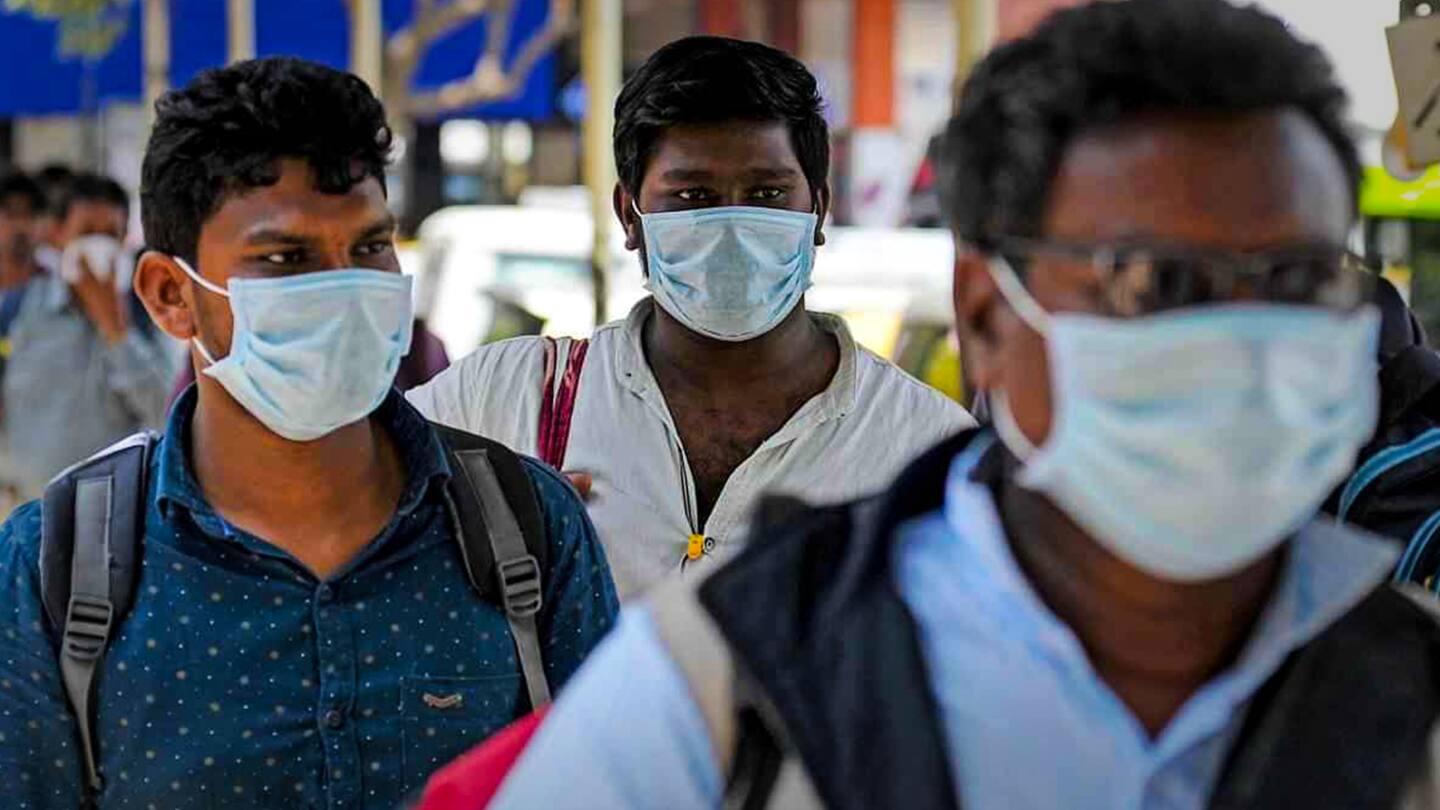
Coronavirus: As infections decline, crowds return in major cities
What's the story
India on Wednesday reported over 62,000 new COVID-19 cases. Active infections have slipped below nine lakh for the first time in 70 days.
In light of the decline in infections, several regions have relaxed norms.
However, people have already started overlooking precautions, crowding public places, particularly in metro cities such as Delhi and Bengaluru. This has caused fresh worry about a spike in infections.
Statistics
India's tally reaches 2.96 crore; over 3.79 lakh dead
According to the Union Health Ministry, till Wednesday morning, India reported a total of 2,96,33,105 COVID-19 cases. The death toll has reached 3,79,573.
So far, 2,83,88,100 patients have recovered, while 8,65,432 cases involve active infections.
In the past 24 hours alone, India recorded 62,224 new infections, 1,07,628 more discharges, and 2,542 fresh fatalities.
26,19,72,014 vaccine doses have been administered so far.
States
71% new cases concentrated in 5 states
Maharashtra reported 9,350 new COVID-19 cases along with 15,176 more recoveries.
Karnataka, the second worst-hit state after Maharashtra, reported 5,041 new cases and 14,785 discharges.
Meanwhile, the third worst-hit Kerala added 12,246 new cases and 13,536 recoveries.
Tamil Nadu, the fourth worst-hit state, reported 11,805 new cases and 23,207 recoveries.
Andhra Pradesh reported 5,741 new cases and 10,567 recoveries.
Delhi
'Have we gone mad?' says Delhi doctor as crowds return
On Tuesday, people across parts of India were seen crowding railway stations and shopping malls. "Delhi's top #mall saw a footfall of 19,000 people last weekend-as soon as it reopened. Have we gone totally mad?" Ambrish Mithal, a doctor with a Delhi Max HealthCare Hospital, tweeted.
Delhi—which has just emerged from a lockdown—recorded 228 COVID-19 cases on Tuesday, down from over 28,000 in April.
AEFI
First death due to COVID-19 vaccine confirmed
Meanwhile, the National Adverse Events Following Immunisation (AEFI) Committee—which is studying COVID-19 vaccine side effects—on Tuesday confirmed the first death due to vaccination.
A 68-year-old man died due to anaphylaxis (severe allergic reaction) immediately after vaccination on March 8.
The panel had submitted its report after assessing 31 AEFI cases (five reported on February 5, eight on March 9, and 18 on March 31).
Information
488 deaths recorded after vaccination, causal link unclear: Health Ministry
Union Health Ministry Joint Secretary Lav Agarwal on Tuesday said that 488 deaths had been reported post-vaccination, however, this did not mean the deaths occurred due to vaccination. Agarwal also highlighted that compared to the number of vaccine doses registered, the deaths stood at 0.0002%.
Dose gap
Experts' body didn't back 12-16 week Covishield dose gap: Report
Separately, on May 13, the Centre had doubled the gap between two doses of the Covishield vaccine, saying that the decision was made after the recommendations of the National Technical Advisory Group on Immunisation (NTAGI).
MD Gupte—a former director of the state-run National Institute of Epidemiology—told Reuters the NTAGI had recommended a dose gap of 8-12 weeks, adding that 12-16 weeks was never mentioned.
Information
'No information on 12-16 week dose gap being beneficial'
Gupte said, "This may be alright, may not be. We have no information on that." Gupte's NTAGI colleague Mathew Varghese and JP Muliyil—a member of the seven-strong COVID-19 working group—corroborated his comments. Notably, the dose gap was widened when India faced a vaccine shortage.
Caution
Government ignored warnings over Delta variant: Expert
Dr. Subhash Salunke told Reuters the government ignored warnings over the Delta variant, blamed for the second wave of COVID-19.
Dr. Salunke—who has 30 years of experience in public health in India, Indonesia, and the United States—said the variant was first detected in Amravati, Maharashtra, in February, and officials were warned about its high transmissibility.
The variant has further mutated into 'Delta Plus'.